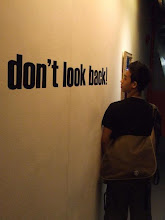
The hungry ghost festival ended a couple of weeks ago. During this period of time, many local Chinese believers would prepare ritualistic food offerings and burn incense and joss papers for the visiting spirits.
This particular incident that I witnessed involved two neighbours of mine. Neighbour 1 (N1) is a Chinese family while Neighbour 2 (N2) is a Muslim family. N1 was performing his offerings and burning paper incense for his ancestors one of the afternoon during the lunar 7th month. Due to strong wind, the burning ashes started flying all around. Some eventually landed in N2's house which is on the second floor, creating a dusty mess. N2 was very disturbed as his son has asthma and he believes that the ashes would trigger off an asthmatic reaction. Shouting from his window, he confronted N1, insisting that they should not burn so much incense as the ashes will start flying all over. He demanded them to stop immediately, otherwise he would complain to the town council. He even made an insensitive comment stating he don't see why N1 needed to burn those incense!
N1 apparently wasn't very happy with the way N2 confronted him. He argued that B was exaggerating the whole situation and refused to budge. The whole conversation got so tense that everything could be heard from my 4th floor unit. All these while, I was observing from my window. Eventually the whole incident came under control when some other neighbour came down to act as mediator. No compromise was made eventually. Ever since then, the two neighbours' relationship remained sour.
Personally, I feel that since we are living in a multi cultural society, we should all be tolerant, patient and be more accommodating towards different cultural practises. In this situation, I believe that both parties are at fault. On one hand, N1 should have graciously admitted that his actions did affect his neighbours. In addition, he should also have assured N2 that he will be done quickly and apologise for any inconvenience caused. On the other hand, N2 could have been more tolerant of the Chinese cultural norm of burning incense. He should have approached N1 with a more polite tone and negotiated assertively with patience. Both parties should have also develop more cultural self awareness. If all these were done, I believe that they could have reached a win-win situation. The situation could have been avoided if both families could be more sensitive to each other's race and cultural beliefs.
From the conflict, we can actually see that effective communication is vital in intercultural situations. The key to solving this unpleasant conflict is perhaps to be empathetic. Only by putting yourself in other people's shoes, will you be able to understand the other party's expectations and be more sensitive to others' traditions, cultures and feelings.
From the conflict, we can actually see that effective communication is vital in intercultural situations. The key to solving this unpleasant conflict is perhaps to be empathetic. Only by putting yourself in other people's shoes, will you be able to understand the other party's expectations and be more sensitive to others' traditions, cultures and feelings.






